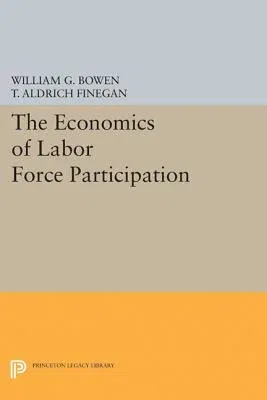William G Bowen
(Author)The Economics of Labor Force ParticipationPaperback, 8 December 2015

Qty
1
Turbo
Ships in 2 - 3 days
In Stock
Free Delivery
Cash on Delivery
15 Days
Free Returns
Secure Checkout

Part of Series
Princeton Legacy Library
Part of Series
Princeton Legacy Library, 2054
Print Length
924 pages
Language
English
Publisher
Princeton University Press
Date Published
8 Dec 2015
ISBN-10
0691621764
ISBN-13
9780691621760
Description
Product Details
Authors:
Book Format:
Paperback
Country of Origin:
US
Date Published:
8 December 2015
Dimensions:
23.39 x
15.6 x
4.62 cm
ISBN-10:
0691621764
ISBN-13:
9780691621760
Language:
English
Location:
Princeton
Pages:
924
Publisher:
Weight:
1265.52 gm